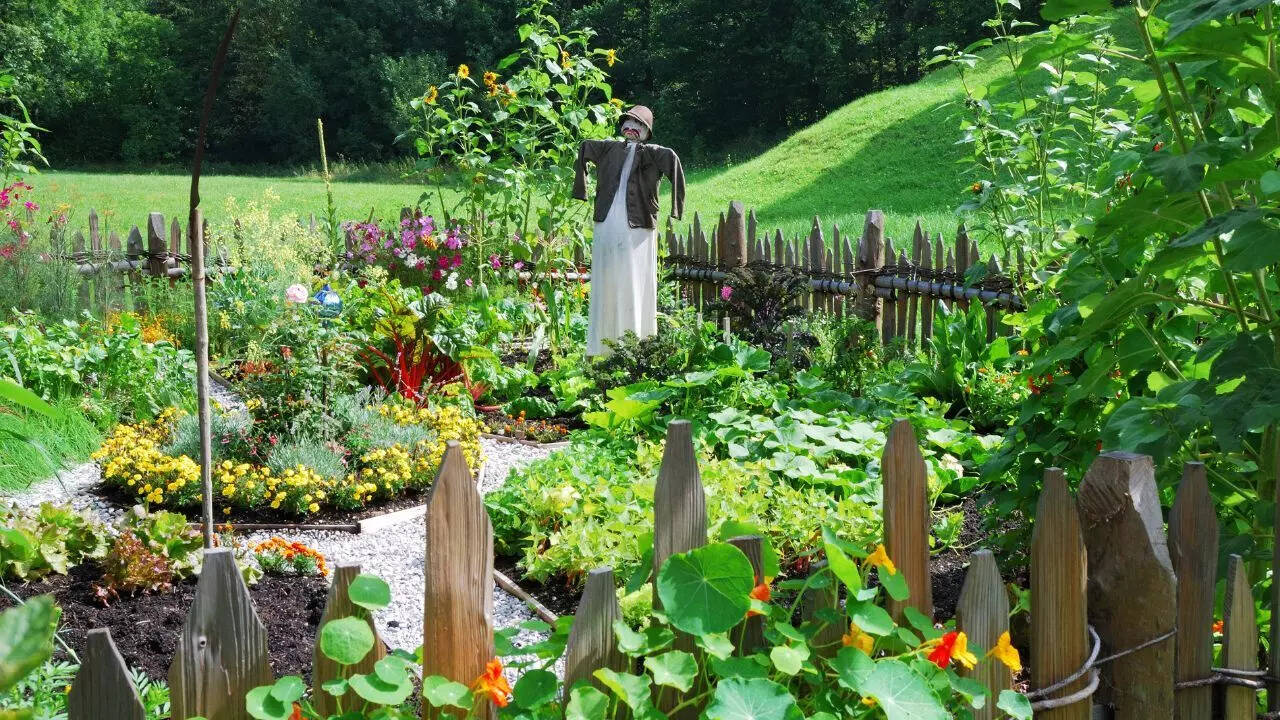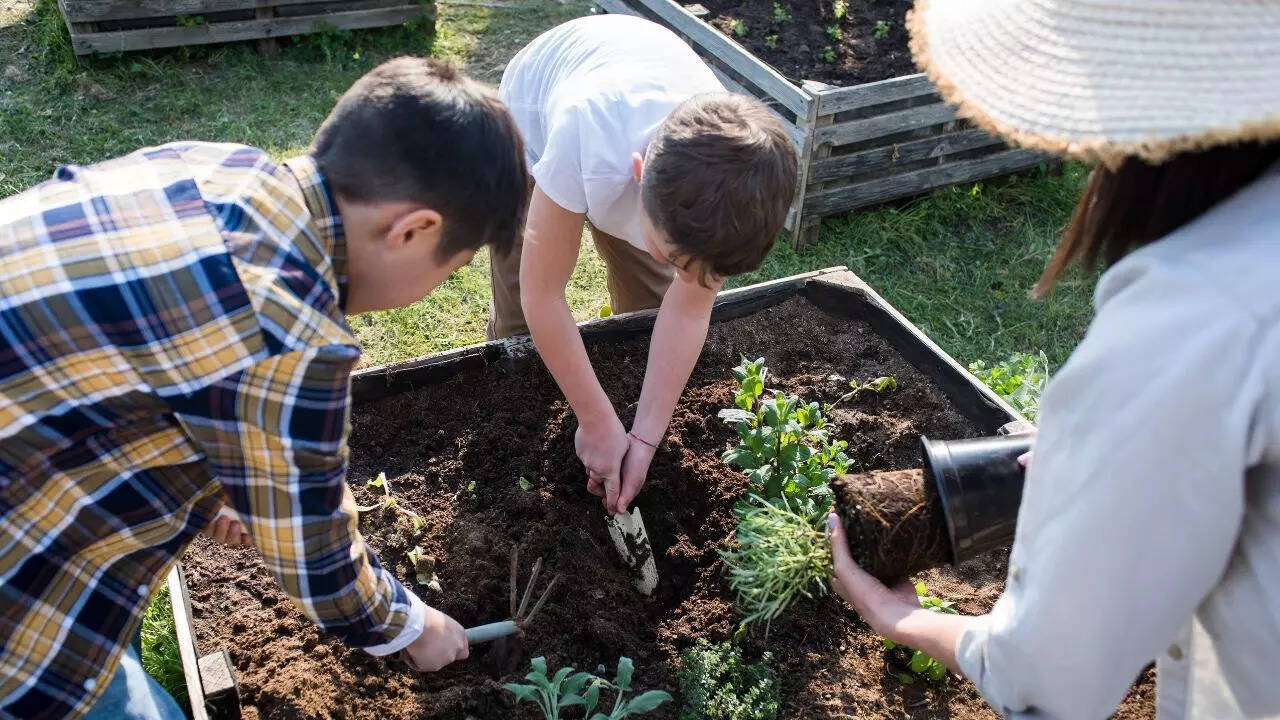The monsoon season breathes life back into the earth, offering respite from the summer's harsh heat and replenishing vital water resources. For gardening enthusiasts, it's nature's signal to cultivate, plant, and nurture. Abundant rainfall, softened earth, and moderate temperatures create an ideal setting for thriving kitchen gardens.
Whether you're an experienced gardener or just starting out, the monsoon season provides an exceptional chance to grow your own food and experience the fulfillment of gardening. As the rains nourish the soil, anticipate a vibrant garden filled with verdant greens, crisp vegetables, and a variety of colorful blooms. This season is an invitation to reconnect with nature, engage with the soil, and savor the gratification of harvesting your own produce. Each seed planted and harvest gathered brings the simple joy of fostering life and witnessing your garden flourish.

The monsoon's gentle rains maintain consistent soil moisture, reducing the need for frequent watering. Temperatures ranging from 20°C to 30°C promote optimal seed germination, while the high humidity enhances nutrient absorption by plants. Essential to success is ensuring proper soil drainage to prevent waterlogging, which can harm young plants.
Here's a practical guide to help you cultivate a thriving kitchen garden this monsoon season:
Choose Wisely: Select a location that receives 4-6 hours of indirect sunlight daily and is not prone to waterlogging. Ensure good air circulation around your plants to minimize the risk of fungal diseases.
Amending Soil: Gently loosen the soil and incorporate compost to enrich it. Verify that the drainage is adequate. Enhance the soil further by mixing in organic matter, such as well-rotted manure, which provides essential nutrients.
Seed or Plant: Adhere to recommended spacing guidelines to ensure healthy plant growth. Consider companion planting to maximize space utilization and foster beneficial interactions between plants.
Watering: Primarily rely on rainwater for irrigation, but monitor moisture levels to prevent waterlogged conditions. Before watering, check the soil moisture by inserting your finger about an inch deep.
Mulching for Moisture: Apply a layer of dried leaves or straw as mulch. This will help retain moisture and absorb sunlight, warming the soil. Aim for a 2-3 inch layer around the plants, keeping a few inches away from the stems.
Pest Control: Employ natural pest deterrents like neem oil or garlic-chili spray to protect your plants. Encourage beneficial insects such as ladybugs and lacewings, which naturally prey on common garden pests.
Regular Harvesting: Harvest leafy greens and young vegetables regularly to encourage continuous production. It's best to harvest in the morning when the plants have the highest water content, ensuring optimal flavor and texture.

Monsoon rains naturally soften compacted soil, making it easier to till and aerate. Boost soil fertility by mixing in organic compost, farmyard manure, or leaf mold. These decompose quickly in moist conditions, releasing vital nutrients such as nitrogen, phosphorus, and potassium. Natural additives like neem cake or bone meal can further enhance nutrition and provide pest resistance. Before planting, evaluate soil drainage by filling a small hole with water; it should drain within 2-4 hours. For clay-heavy soils, incorporate cocopeat or coarse sand to improve aeration and prevent waterlogging, promoting healthy root development and a thriving kitchen garden.
Natural Irrigation: Consistent rainfall significantly reduces the need for manual watering, conserving time and resources. Rainwater also serves as a natural, balanced water source for optimal plant hydration and growth.
Ideal Growing Conditions: The monsoon season fosters cooler temperatures and consistent soil moisture, which promotes seed germination and root establishment. With daytime temperatures averaging 25-30°C (77-86°F) and high humidity, plants experience optimal conditions for robust growth.
Natural Pest Balance: The humid environment encourages beneficial organisms that help suppress harmful pests. This reduces reliance on synthetic pesticides, promoting ecosystem health and minimizing the risk of chemical contamination in your food.
Promotes Soil Fertility: The warm, moist conditions accelerate the breakdown of organic matter, enriching the soil and providing essential nutrients to plants. This creates microbial conditions that enhance nutrient availability for plant uptake.
Fresher, Healthier Produce: Vegetables harvested from your own garden are fresher, chemical-free, and nutrient-rich. The satisfaction of growing your own food, packed with nutritional value, is unparalleled.
Older articles
 Ashada Gupt Navratri 2025: Unveiling Dates, Timings, Significance & Secret Rituals
Ashada Gupt Navratri 2025: Unveiling Dates, Timings, Significance & Secret Rituals
 Popular Finance YouTuber's Account Hacked, Bitcoin Scam Promoted: Security Lessons Learned
Popular Finance YouTuber's Account Hacked, Bitcoin Scam Promoted: Security Lessons Learned
 Suryakumar Yadav Sidelines After Sports Hernia Surgery: Understanding the Injury, Recovery, and Treatment Options
Suryakumar Yadav Sidelines After Sports Hernia Surgery: Understanding the Injury, Recovery, and Treatment Options
 Hollywood's Love Affair with India: Iconic Film Locations Revealed
Hollywood's Love Affair with India: Iconic Film Locations Revealed
 6 Yoga Poses to Naturally Support Thyroid Function and Hormonal Balance
6 Yoga Poses to Naturally Support Thyroid Function and Hormonal Balance
 Microsoft Aims for Foldable Redemption with Novel Hinge Design to Rival iPhone and Android
Microsoft Aims for Foldable Redemption with Novel Hinge Design to Rival iPhone and Android
 Shubman Gill's Captaincy Under Fire: Bold Calls Needed After England Test Defeat
Shubman Gill's Captaincy Under Fire: Bold Calls Needed After England Test Defeat
 Rishabh Pant Aims to Surpass Virat Kohli in Test Century Tally During England Series
Rishabh Pant Aims to Surpass Virat Kohli in Test Century Tally During England Series
 Plant-Based Diet Outperforms Mediterranean in Diabetes Risk Reduction, Weight Loss: Study
Plant-Based Diet Outperforms Mediterranean in Diabetes Risk Reduction, Weight Loss: Study
 Esha Gupta Breaks Silence on Hardik Pandya Romance Rumors: 'We Were Just Talking'
Esha Gupta Breaks Silence on Hardik Pandya Romance Rumors: 'We Were Just Talking'